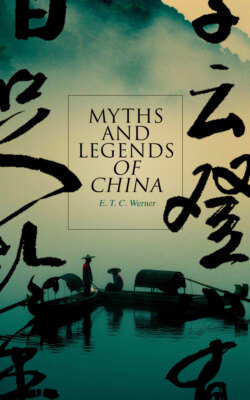Читать книгу Myths and Legends of China - E. T. C. Werner - Страница 43
На сайте Литреса книга снята с продажи.
The Chinese Intellect
ОглавлениеThe Chinese are not unimaginative, but their minds did not go on to the construction of any myths which should be world-great and immortal; and one reason why they did not construct such myths was that their intellectual progress was arrested at a comparatively early stage. It was arrested because there was not that contact and competition with other peoples which demands brain-work of an active kind as the alternative of subjugation, inferiority, or extinction, and because, as we have already seen, the knowledge required of them was mainly the parrot-like repetition of the old instead of the thinking-out of the new 1—a state of things rendered possible by the isolation just referred to. Confucius discountenanced discussion about the supernatural, and just as it is probable that the exhortations of Wên Wang, the virtual founder of the Chou dynasty (1121–255 B.C.), against drunkenness, in a time before tea was known to them, helped to make the Chinese the sober people that they are, so it is probable—more than probable—that this attitude of Confucius may have nipped in the bud much that might have developed a vigorous mythology, though for a reason to be stated later it may be doubted if he thereby deprived the world of any beautiful and marvellous results of the highest flights of poetical creativeness. There are times, such as those of any great political upheaval, when human nature will assert itself and break through its shackles in spite of all artificial or conventional restraints. Considering the enormous influence of Confucianism throughout the latter half of Chinese history—i.e. the last two thousand years—it is surprising that the Chinese dared to think about supernatural matters at all, except in the matter of propitiating their dead ancestors. That they did so is evidence not only of human nature's inherent tendency to tell stories, but also of the irrepressible strength of feeling which breaks all laws and commandments under great stimulus. On the opposing unæsthetic side this may be compared to the feeling which prompts the unpremeditated assassination of a man who is guilty of great injustice, even though it be certain that in due course he would have met his deserts at the hands of the public executioner.
